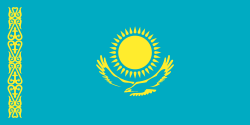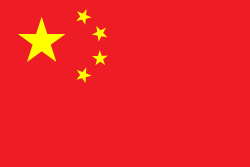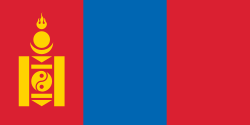María Isabel Urrutiaová
| María Isabel Urrutiaová | |
|---|---|
 | |
| Narození | 25. března 1965 (58 let) Candelaria |
| Povolání | vzpěračka, atletka a politička |
| Politická strana | Alternative Democratic |
| Funkce | poslanec Sněmovny Reprezentantů Kolumbie (2002–2010) Minister of Sport (2022–2023) |
| Některá data mohou pocházet z datové položky. | |
| Přehled medailí | ||
|---|---|---|
| zlato | 2000 Sydney | do 75 kg |
| Mistrovství světa ve vzpírání | ||
| zlato | MS 1990 | 82,5 kg |
| zlato | MS 1994 | 83 kg |
| stříbro | MS 1989 | 82,5 kg |
| stříbro | MS 1991 | 82,5 kg |
| stříbro | MS 1995 | 83 kg |
| stříbro | MS 1997 | 83 kg |
| bronz | MS 1996 | 83 kg |
| bronz | MS 1998 | +75 kg |
María Isabel Urrutia Ocoró (* 25. března 1965 Candelaria, Valle del Cauca) je kolumbijská vzpěračka, atletka a politička. Pro Kolumbii získala první olympijskou zlatou medaili v celé historii.
V mládí se věnovala zejména vrhu koulí a hodu diskem. V obou těchto disciplínách soutěžila na Letních olympijských hrách v Soulu roku 1988. V roce 1989 se přeorientovala na vzpírání a na mistrovství světa v Manchesteru, které se toho roku konalo, hned získala stříbro v kategorii do 82,5 kilogramu. Za rok na to tuto kategorii vyhrála a stala se mistryní světa. V roce 1991 brala stříbro, v roce 1993 znovu zlato (do 83 kg), rok na to stříbro, roku 1996 bronz, 1997 stříbro, 1998 bronz (nad 75 kg). V roce 2000 pak završila svou kariéru zlatou medailí na Letních olympijských hrách v Sydney, v těžké váze.[1] V roce 2002 byla zvolena poslankyní dolní komory kolumbijského parlamentu za liberální Sjednocenou lidovou stranu (Movimiento Popular Unido). Znovuzvolena byla roku 2006, tento post zastávala do roku 2010.
Reference
V tomto článku byl použit překlad textu z článku María Isabel Urrutia na anglické Wikipedii.
- ↑ María Isabel Urrutia Bio, Stats, and Results. Olympics at Sports-Reference.com [online]. [cit. 2018-12-20]. Dostupné v archivu pořízeném z originálu dne 2008-12-22. (anglicky)
Externí odkazy
 Obrázky, zvuky či videa k tématu María Isabel Urrutiaová na Wikimedia Commons
Obrázky, zvuky či videa k tématu María Isabel Urrutiaová na Wikimedia Commons - María Isabel Urrutiaová v databázi Olympedia (anglicky)
Média použitá na této stránce
Olympic Rings without "rims" (gaps between the rings), As used, eg. in the logos of the 2008 and 2016 Olympics. The colour scheme applied here was specified in 2023 guidelines.
Olympic Rings without "rims" (gaps between the rings), As used, eg. in the logos of the 2008 and 2016 Olympics. The colour scheme applied here was specified in 2023 guidelines.
The national flag of Kingdom of Thailand; there are total of 3 colours:
- Red represents the blood spilt to protect Thailand’s independence and often more simply described as representing the nation.
- White represents the religion of Buddhism, the predominant religion of the nation
- Blue represents the monarchy of the nation, which is recognised as the centre of Thai hearts.
Chinese Taipei Olympic Flag. According to the official website of Chinese Taipei Olympic Committee, Blue Sky(circle) & White Sun(triangles) above the Olympic rings is neither the National Emblem of the Republic of China, nor the Party Emblem of Kuomintang (KMT), but a design in between, where the triangles do not extend to the edge of the blue circle, as registered at International Olympic Committee in 1981 and digitally rendered in 2013. Besides, the blue outline of the five-petaled plum blossom is broader than the red one. Moreover, the CMYK code of the blue one and the Blue Sky & White Sun is "C100-M100-Y0-K0", and different from the Olympic rings (C100-M25-Y0-K0). Note that it's the only version recognized by IOC.
Georgian flag in Pantone MS.
Autor: Ministerio TIC Colombia, Licence: CC BY 3.0
María Isabel Urrutia, weightlifter, athlete, and politician from Colombia.












